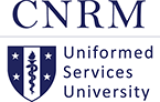OUR WORK
Driving our research is the desire to understand how biological molecules interact to orchestrate highly complex cellular processes. Our research is related to neurodegenerative diseases and Post-Traumatic Stress Disorder (PTSD) suffered by people working in the military. Research programs include investigations on sphingolipid metabolism, human multidrug transporters, unusual metalloenzymes in anaerobic metabolism, mRNA turnover, intracellular organelle distribution mediated by microtubule motors, the mechanisms controlling the distribution of homologous recombination events in meiosis, mitochondrial quality control, secretory pathway protein quality control and protein trafficking, the mechanism of cerebral cortical neurogenesis, and using the cytoskeleton to gain insight into immune cell migration.
Some of Our Partners







Several faculty members use model organisms to understand basic cellular processes and human disease mechanisms. Genetic screens have been used for discovery of proteins in specific pathways. Over the years, we have identified key proteins in the sphingolipid synthesis pathway, especially novel regulators of the pathway whose dysfunction is linked to human diseases. We have also identified and studied proteins that are required for the function of a microtubule motor, cytoplasmic dynein, including the the adapter protein complex linking dynein to its early endosome cargo. We have used the fruit fly to study proteins implicated in human Parkinson’s disease. Moreover, genomic and bioinformatic approaches are used in mouse models to study processes critical to human reproduction and development, such as meiosis whose dysfunction is involved in human infertility and cerebral cortical neurogenesis whose dysfunction leads to brain developmental disorders. Live cell imaging and biochemical approaches are used to study protein quality control and trafficking in the secretory pathway, cell migration and RNA processing. In addition, we also study the structure and function of unusual metalloenzymes in anaerobic bacteria and archaea, and are currently examining alternative energy pathways in a strictly anaerobic human pathogen. These research activities combined with our teaching activities in our medical school contribute to public health and DoD by providing the knowledge necessary to understand human diseases and diseases that are suffered by veterans.
Within the university, our department has been recognized for its strength in conducting basic research. In recent years, three of our members, Dr. Teresa Dunn (2006), Dr. Galina Petukhova (2013) and Dr. Xin Xiang (2017), have won the USU Henry Wu award that recognizes excellence in basic science.
